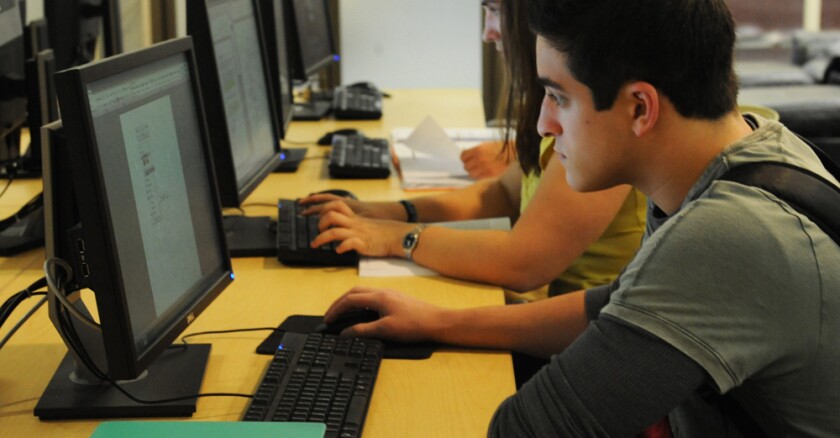This shortage means many students, especially first-generation students who will be the first in their families to attend college, are left to their own devices to find the support they need to pursue college and career opportunities.
Even for students with access to school advisers, getting the information needed to help them and their families make the best college choices remains a challenge. Students need to know about potential colleges’ costs (including available financial aid packages), their graduation rates, and the schools’ academic offerings. And all students, especially those taking on college debt, need to understand the earning potential of their chosen degree programs.
Though providing students with adequate college guidance should primarily be a school’s responsibility, technology can help alleviate some of the shortfalls that exist in adequately guiding students towards college and career opportunities.
Virtual Counselors and Mentors
A recent Hechinger Report article highlights the work of a Minnesota-based nonprofit, College Possible, that has started a program operating in several states to help underserved students in rural areas navigate the college application process. Through regular contact with an assigned virtual adviser, students are provided support in upping their ACT scores, improving their college application essays, and completing their college and Free Application for Federal Student Aid (FAFSA) applications.Noteworthy nonprofits have been working for some time to provide urban students with college coaching. Thanks to virtual programs such as College Possible and UStrive, students in rural areas are beginning to receive support.
To prepare for the college application process, students, and especially first-generation students, need the support of professionals, peers and near-peers. That's why a growing number of nonprofit virtual mentoring programs are pairing underserved students with individuals who can provide such support.
- iMentor — Primarily conducted through a blended approach of face-to-face and virtual interactions between mentors and students, iMentor has a proven record of success and has been adopted by such organizations as Big Brothers Big Sisters of America.
- iCouldBe — Pairing at-risk middle and high school students with an online community of professional mentors, the program aims to build students’ career ambitions and provide college guidance.
- College Board’s Access to Opportunity (A2O) — Started in 2018, A2O pairs recent college grads from the College Advising Corps with a select group of college-bound students.
- UPNEXT — Though not a virtual mentoring program per se, UPNEXT is offered through Michele Obama’s Better Make Room campaign and provides students with text messaging support and information on all aspects of the college selection and application process.
College Advising Software
As mentioned, one of the challenges all college-bound students face is getting information on schools beyond what’s offered in the schools’ marketing materials. For first-generation students, finding colleges that have advisers available to assist them in navigating the college system and campus life is important. According to the National Center for Education Statistics, six years after enrolling, the graduation rate of first-generation college students is only 11 percent compared to 55 percent for their more advantaged peers.For high school counselors, finding good information that can help them advise their first-generation college-bound students is a challenge. No national database or commercial product currently exists to aid in pairing students with colleges where students have both a good chance of being accepted, and once in, where they’ll be most likely to graduate.
However, an April 2019 article in The 74 describes promising work being done within Chicago’s Noble charter school network. Thanks to the work of Noble’s Matt Niksch, an enterprising software developer, Noble’s counselors, as well as those in a growing number of other U.S. charter schools, can use Niksch’s College Bot program to help students make better-informed college choices.
Using information gathered from Noble’s college-bound students, the College Bot identifies which schools have historically provided the best financial aid packages. Using other student data, the program guides students to apply to schools where they are most likely to be accepted. The bot also offers a broad pool of college options that students might not otherwise consider, including small liberal arts colleges in rural areas.
One hopes the success of Noble’s College Bot will attract the attention of other software developers who can bring to market similar tools to help counselors and students make better-informed college decisions.
There’s no single solution that will ensure more students are better prepared for college and career success. But stemming the decline of school counselors and further advancing the college advisory technology solutions described here are both key factors towards achieving that goal.









